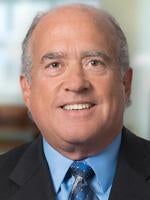In the late 1990s, former Atlanta Braves players John Smoltz and Ryan Klesko formed Big K Farms (“Big K”), a partnership that, over the years, acquired approximately 1,500 acres of land in Georgia for around $4 million. From roughly 2010 to 2012, Big K obtained multiple appraisals valuing the property at $4-$6 million. In February 2013, Smoltz and Klesko sold 99% of the interest in Big K for $6 million, with Mr. Klesko retaining a 1% interest. Mr. and Mrs. Smoltz did not retain any ownership interest.
Ten months later, Big K donated a conservation easement to a land trust and claimed a $47,570,000 charitable deduction (eight times the purchase price). Big K eventually changed its name to Buckelew Farms and filed the required disclosures triggering an IRS audit of the partnership. The IRS sought to assess fraud penalties in Tax Court.
The IRS claimed that the appraiser’s departures from the Uniform Standards of Professional Appraisal Practice (“USPAP”) were “significant, serious, and seemingly intentionally designed to create a report simply to justify the value hoped by the Partnership.” Among numerous alleged flaws, the appraiser failed to “report the Subject Property’s prior sales history.” The Tax Court generally accepted the IRS’s position that the “appraisal lacks full compliance under USPAP” and gave Big K’s appraisal little weight, finding the value “firmly planted somewhere in the realm of fantasy.” Yet the Court still found that the “appraisal was a qualified appraisal for purposes of section 170(f)(11).” Focusing on valuation instead of foot faults, the Tax Court reduced the claimed contribution to approximately the purchase price.
The IRS sought to impose a 75% fraud penalty, alleging that the “record is replete with lies and falsehoods.” A prominent SCE organizer identified in the 2020 Senate Finance Report on SCEs assisted Big K. However, the Tax Court declined to assess fraud penalties. Citing Mill Road, the Tax Court found that disclosing the “principal facts about the conservation easement contribution” weighed heavily in its decision. The disclosure of the principal facts that alerted the IRS to the potentially inflated appraisal and resulted in an audit stood in “stark contrast” to an intentional act of concealment.
The Tax Court treated Buckelew Farms as a dispute over valuation rather than fraudulent conduct. This is good news for professionals who rely, in good faith, on MAI appraisers and the disclosure of the “principal facts” by conservation easement organizers. The DOJ and IRS have pursued professionals who, due to their specialized training, allegedly knew that SCE transactions with high ratios were fraudulent. Yet, the Tax Court found that Buckelew Farm’s appraisal was a qualified appraisal despite being “firmly planted somewhere in the realm of fantasy” and found that Buckelew’s disclosure of the principal facts outweighed numerous other alleged indicators of fraud.
The Buckelew Farms opinion bolsters the good faith, reasonable inquiry, and/or reasonable cause defenses for professionals facing criminal and/or civil fraud claims. It is unclear who it will help and how much. In Bukelew Farms, the Tax Court may have been reluctant to impose fraud penalties on investors when the alleged fraud was committed by the Promoters. It recognized that the IRS “proffered some evidence of conduct that might give rise to a suspicion of fraud” but “most of the evidence concerns conduct unrelated to the Partnership’s tax return.” On the other hand, the DOJ recently convicted Jack Fisher and James Sinnott for their roles in promoting Inland Capital’s SCEs (Fisher Gets 25 Years for SCE Role) and has secured multiple guilty pleas from other professionals. Ultimately, the 11th Circuit will have an opportunity to weigh in on these issues when it hears Mr. Fisher’s and Mr. Sinnott’s appeals.
For investors, there is no silver lining in the Buckelew Farms decision. The Tax Court’s fraud findings are a small loss for the IRS in an otherwise big win on valuation. The IRS is currently making settlement offers to numerous partnerships that have filed petitions in Tax Court. Some of the partnerships, in turn, are asking the partners to vote on the settlements. Investors need to carefully evaluate the IRS offers now that the Tax Court is focusing on valuation. The Tax Court has “repeatedly affirmed that actual arm’s-length sales occurring sufficiently close to the valuation date are the best evidence of value, and typically dispositive, over other valuation methods.” Focusing on valuation, the Tax Court reduced the Buckelew Farms charitable deduction by 90% and imposed a painful 40% penalty.
Future investors should be highly skeptical of any offering similar to an SCE – including “fee-simple” deals that appear to offer the same return as a SCE. If Buckelew Farms is upheld, investors are the ones who will suffer the loss.





 />i
/>i

